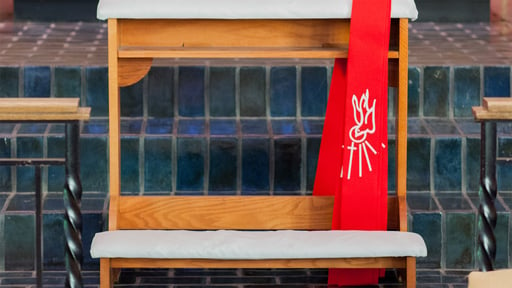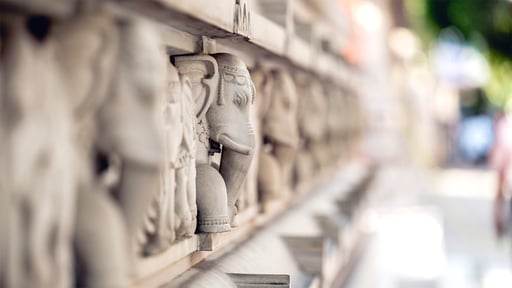In January 1977, newly-elected President Jimmy Carter traveled down Pennsylvania Avenue in Washington DC on his way to the White House. Yet this time, things were different; President Carter, his wife, Rosalynn, and his nine-year-old daughter, Amy, were walking. Carter was the first president to exit the motorcade and walk during the inaugural parade. Previously, newly-elected presidents had ridden coach or driven down the passage, presumably in reaction to the January cold and for the sake of protection from would-be assassins.
Following the presidencies of Richard Nixon, who resigned in the face of impeachment, and that of his vice president, Gerald Ford, Carter wanted to usher in a new era of integrity, transparency, and humble servanthood. Since Carter’s winter walk, trekking down Pennsylvania Avenue on foot has become a traditional part of the inaugural parade.
Your King Is Coming to You
The prophet Zechariah refers to another triumphal entry. It is that of Jesus Christ in Jerusalem during the week of His Passion:
The Book of Zechariah and the Book of Haggai are records of God using His prophets to encourage the people of Israel to continue rebuilding the temple. Recall that decades prior, God allowed the Babylonians to invade, conquer, and destroy the Southern Kingdom, including its capital, Jerusalem. During this domination, the aggressive Babylonians destroyed the temple. Babylon captured the surviving Hebrews and took them back to their homeland, where they lived in exile. Eventually, God, in His mercy, used the Medes and Persians to route the Babylonians, eventually allowing the Hebrews to return home. Now it was time for the Israelites to rebuild the city and the temple.Rejoice greatly, O daughter of Zion! Shout aloud, O daughter of Jerusalem! Behold, your king is coming to you; righteous and having salvation is He, humble and mounted on a donkey, on a colt, the foal of a donkey. I will cut off the chariot from Ephraim and the war horse from Jerusalem; and the battle bow shall be cut off, and He shall speak peace to the nations; His rule shall be from sea to sea, and from the River to the ends of the earth.
(Zechariah 9:9–10)
Jesus’ Triumphal Entry in Zechariah 9
Recall that Jesus, in His human nature, is a descendant of King David. It is interesting to note that King David and his sons also entered their respective kingdoms riding on a colt, the foal of a donkey. The idea, much like Carter’s, was to convey humility and a desire to serve. Naturally, Jesus serves us in a way that neither King David nor Carter could dream of. While both leaders accomplished much for the good of their people, David and Carter also made mistakes. More importantly, both were sinners. Jesus served in His present day and for eternity. Our Lord fed the hungry, healed the sick, cast out demons, and raised the dead. Then He died on the cross, suffering for the sins of the entire world, including those of King David and Carter. Christ, who rose from the dead, has purchased and won sinners from sin, death, and the power of the devil.
As sinners, we struggle to accept Jesus’ humble servanthood in two ways. First, we would rather be served than serve. In the Garden of Eden, Adam and Eve served each other in sincere humility. They did so without any thought of their own needs because their wills were in perfect alignment with God’s. They also knew God would take care of them. The Lord calls us to serve in this way today. We do so as husbands collaborate with their wives to complete household chores, as students help their teachers clean their classrooms, and so on. Adam and Eve’s disobedience (and ours as well) brought on sinful nature—the desire to be served rather than to serve. Second, sinful nature spurns Christ’s work. Many have rejected and continue to reject Christ’s redemption. They will not be served, holding fast instead to their good works and a false sense of their own goodness before God’s righteous expectations.
Jesus’ Triumphal Return on the Last Day
It is important to remember that Jesus will one day make another triumphal entry. This will be His second coming, what we also call Judgement Day. On this day, our Lord will not come into the world riding a humble donkey, nor will He suffer. Instead, He will come in glory, where every knee will bow, the faithful will be raised to life, and the unbeliever will be escorted into everlasting torment.
Zechariah 9:10 can be confusing initially for a few reasons:
- Why would God want to take away the chariot from Ephraim and the warhorse from Jerusalem?
- Wouldn’t these nations need these implements of war for defense?
- Wouldn’t God in His love provide them as a matter of course?
God speaks through Zechariah, explaining that He will provide a peace so that implements of war will no longer be needed. This is Jesus Christ. As history suggests, war will continue until the return of Christ. Yet, due to Christ’s victory, it will end. Our strife with God is over for the same reason. Christ is our peace, earning it not with the bow, chariot, or warhorse but with His precious blood. We are comforted to know that this peace with God not only surpasses any earthly peace but remains even in the presence of conflict. Even during a conflict with a spouse, parent, sibling, friend, co-worker, or supervisor, we remain at peace with God in Christ.
Scripture: ESV®.
 God’s promise of salvation found in Jesus Christ brings peace to all ages.
God’s promise of salvation found in Jesus Christ brings peace to all ages.






.jpg?width=50&height=50&name=IMG_20220621_160541_456%20(1).jpg)






